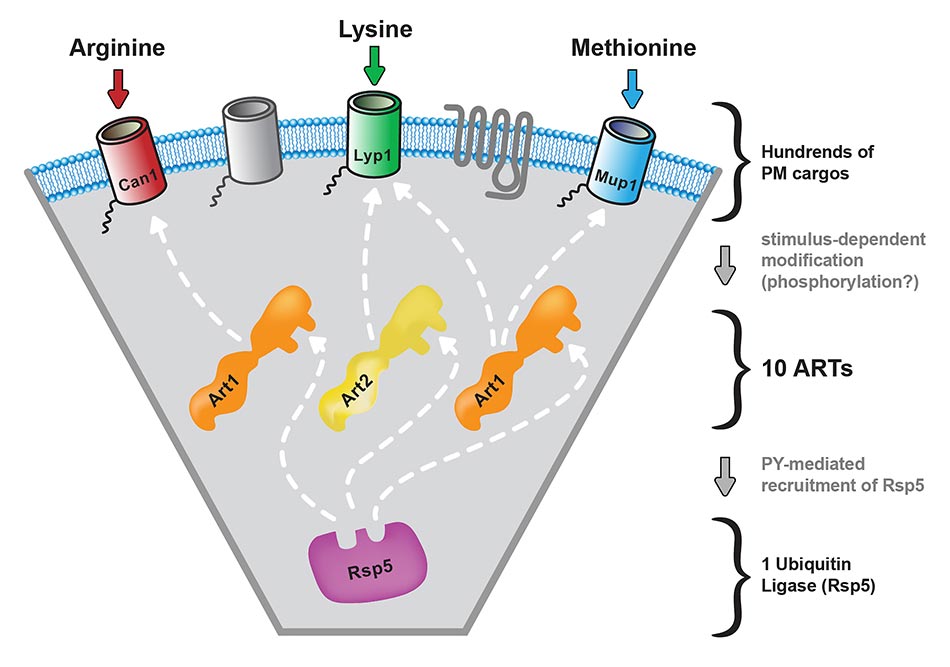The Emr lab studies the regulation of cell signaling pathways by phosphoinositide kinases, vesicle-mediated transport reactions, and selective ubiquitin modifications.
The endosomal sorting complexes required for transport (ESCRTs) comprise a highly conserved pathway of five distinct complexes – ESCRTs-0, -I,-II, -III, and Vps4, that induce a membrane budding process at the endosome resulting in the formation of intralumenal vesicles (ILVs) inside the endosome, multivesicular endosome (MVE). Our long-term goal is to understand the molecular mechanisms that underlie the assembly and function of each of the ESCRT complexes in the formation of multivesicular endosomes for the delivery of cargo destined for degradation in the vacuole or lysosome.
The endo-lysosome Protein Quality Control (PQC) pathway monitors membrane proteins at multiple, sequential endocytic organelles to prevent their accumulation of damaged or mistargeted proteins. Our lab is interested in understanding what all players play a key role in protein quality control in the endocytic pathway, how their function and localization is regulated, and which cargos are targeted by them for degradation in response to specific cues.
Plasma membrane protein remodeling by Rsp5-ART adaptor network
The plasma membrane contains numerous receptors and permeases which respond to external stimuli to regulate cellular processes such as nutrient uptake, cellular growth, and differentiation. Proper regulation of plasma membrane proteins is vital for cell homeostasis, as defects in endocytic down regulation can lead to hyperproliferation and cancer. We are interested in deciphering how specific regulation of individual plasma membrane proteins is achieved.
Phosphoinositide Lipid Signaling
Phosphatidylinositol phosphates (PIPs) are low-abundance lipids that are essential in the regulation of diverse cellular processes which include cell growth, survival, differentiation, cytoskeletal organization, and membrane trafficking. Specific PIPs are enriched in specific subcellular compartments, and provide a binding platform to recruit and activate downstream effector proteins. PIPs are regulated by lipid kinases and phosphatases, and misregulation of PIPs is associated with human pathologies including cancer and various neurodegenerative diseases.
Retromer is a conserved protein coat complex composed of five proteins: Vps5, Vps17, Vps26, Vps29, and Vps35. It deforms the endosomal membrane to form cargo-containing recycling tubules/vesicles, enabling proper recycling and sorting of cargos in the endo-membrane system. We are interested in understanding the molecular mechanisms underlying cargo sorting as well as their regulation.







